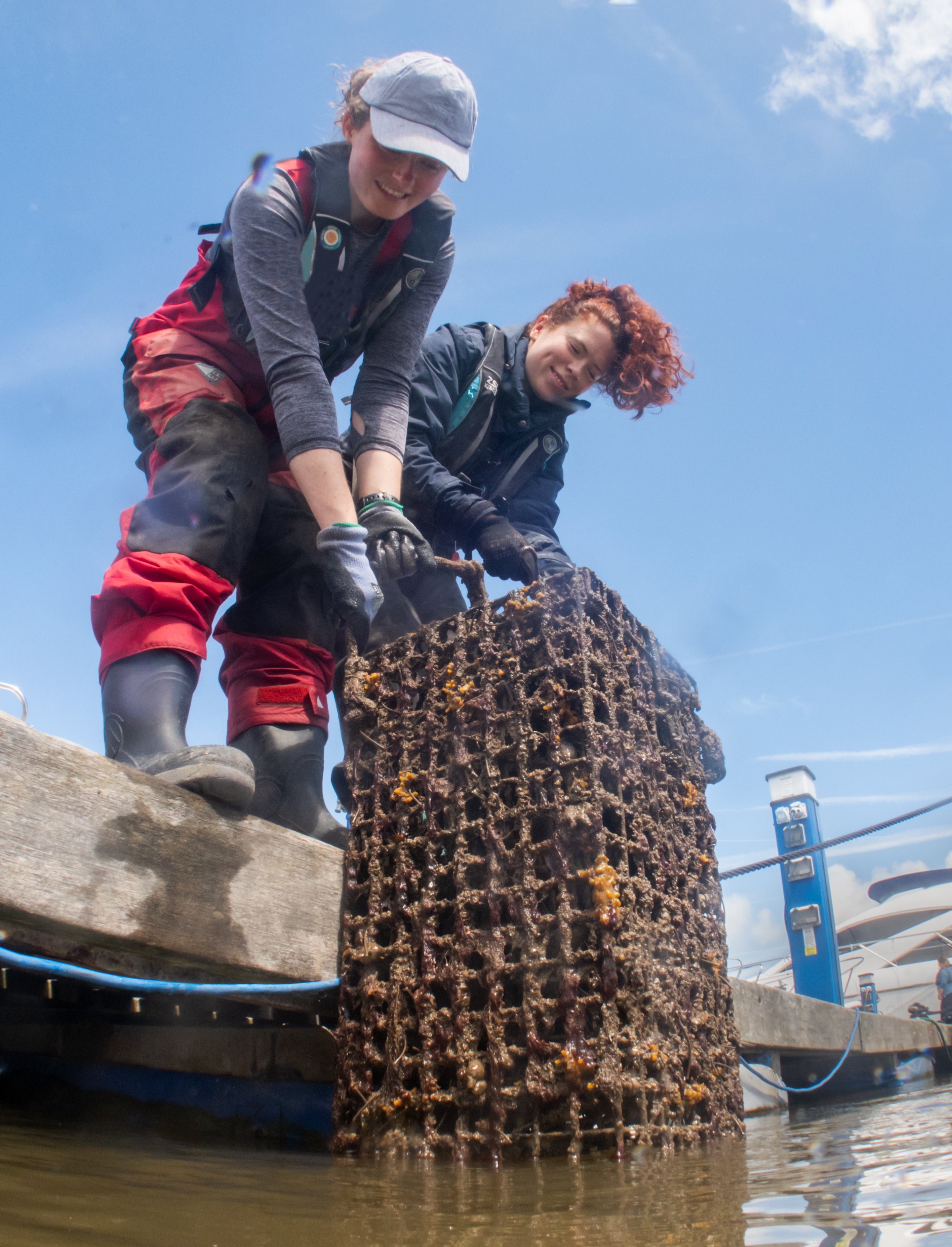Oyster nurseries filter half a million bathtubs of water in year since creation
Experts say efforts to bring the native oyster back from the brink of extinction is already having major benefits.

Your support helps us to tell the story
From reproductive rights to climate change to Big Tech, The Independent is on the ground when the story is developing. Whether it's investigating the financials of Elon Musk's pro-Trump PAC or producing our latest documentary, 'The A Word', which shines a light on the American women fighting for reproductive rights, we know how important it is to parse out the facts from the messaging.
At such a critical moment in US history, we need reporters on the ground. Your donation allows us to keep sending journalists to speak to both sides of the story.
The Independent is trusted by Americans across the entire political spectrum. And unlike many other quality news outlets, we choose not to lock Americans out of our reporting and analysis with paywalls. We believe quality journalism should be available to everyone, paid for by those who can afford it.
Your support makes all the difference.A network of oyster nurseries set up to help restore marine habitat have filtered almost half a million bathtubs worth of water in just one year, conservationists say.
A scheme to bring the native oyster back from the brink of extinction saw around 4,000 of the shellfish suspended beneath pontoons in three estuaries across England, Scotland and Wales.
A mature oyster can filter pollutants out of up to 200 litres of water a day, but their numbers in the British isles have declined 95% since the 1800s.
The Wild Oyster Project was set up a year ago, with sites in the River Conwy in north Wales, the Firth of Clyde in central Scotland, and Tyne and Wear in northern England.
The initiative is a collaboration between the Zoological Society of London (ZSL), the Blue Marine Foundation and trade association British Marine.
Ecologists estimate the marine molluscs have so far filtered almost 98 million litres of water – the equivalent of half a million bathtubs.
They are also providing a boost to other marine life, with 65 species found living among the oyster beds, including the critically endangered European eel, the common prawn and shore crab.
Local volunteers carry out biodiversity monitoring at the sites every month, and they counted more than 27,000 marine animals in the waters around the nurseries between August last year and June 2022, a spokeswoman for the project said.
Celine Gamble, wild oysters project manager for ZSL, said “With the support of over 200 local community volunteers who have dedicated over 2,000 hours, we have already seen oysters have a hugely positive impact in what is a really short amount of time.
“Despite their small size, oysters make a huge impact to their environment, including providing an essential habitat to important species such as butter fish, corkwing wrasse, crabs, amphipod crustaceans, blue mussels, rock cook fish and worm pipefish.
“We have been delighted to find all of these living alongside the native oyster nurseries we established, within just a year of us starting the project.”
Some of the oysters have started to release the next generation of baby oysters, known as spat, on to the seabed where it is hoped they will thrive, the conservationists said.
The Wild Oyster Project hopes to restore 20,000 square kilometres of oyster reefs that have been lost from Britain’s coastline.
Matt Uttley, restoration project manager at Blue Marine, said: “Native oysters are ecosystem engineers, meaning they create a complex 3D habitat that provides feeding and nursery grounds for other species.
“Given that native oyster beds are so crucial to marine life, yet are one of the most threatened marine habitats in Europe, the work of the wild oysters project to restore these lost habitats is essential.”
The Wild Oyster Project received £1.18 million in funding from the People’s Postcode Lottery through its Dream Fund award.
It released the data on the scheme’s progress ahead of World Oyster Day on Friday.